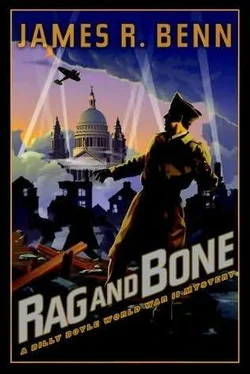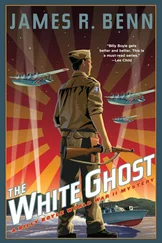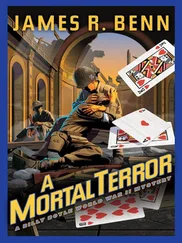James Benn - Rag and Bone
Здесь есть возможность читать онлайн «James Benn - Rag and Bone» весь текст электронной книги совершенно бесплатно (целиком полную версию без сокращений). В некоторых случаях можно слушать аудио, скачать через торрент в формате fb2 и присутствует краткое содержание. Жанр: Шпионский детектив, на английском языке. Описание произведения, (предисловие) а так же отзывы посетителей доступны на портале библиотеки ЛибКат.
- Название:Rag and Bone
- Автор:
- Жанр:
- Год:неизвестен
- ISBN:нет данных
- Рейтинг книги:4 / 5. Голосов: 1
-
Избранное:Добавить в избранное
- Отзывы:
-
Ваша оценка:
- 80
- 1
- 2
- 3
- 4
- 5
Rag and Bone: краткое содержание, описание и аннотация
Предлагаем к чтению аннотацию, описание, краткое содержание или предисловие (зависит от того, что написал сам автор книги «Rag and Bone»). Если вы не нашли необходимую информацию о книге — напишите в комментариях, мы постараемся отыскать её.
Rag and Bone — читать онлайн бесплатно полную книгу (весь текст) целиком
Ниже представлен текст книги, разбитый по страницам. Система сохранения места последней прочитанной страницы, позволяет с удобством читать онлайн бесплатно книгу «Rag and Bone», без необходимости каждый раз заново искать на чём Вы остановились. Поставьте закладку, и сможете в любой момент перейти на страницу, на которой закончили чтение.
Интервал:
Закладка:
“You’re not from around here then.” The voice came from the sidewalk, where an elderly gent rested his hands on his cane, a playful smile on his face.
“Don’t tell me you get used to this?” I asked him.
“You never get used to Jerry coming over, and he used to, you know, day and night. Hit the airfield outside of town and us, too, for good measure. Now, at least if I hear airplanes during the day, I know it’s you Yanks flying them. Makes a fella feel good not to have to look up. Safe and secure, like.”
“You take any hits recently, with the new raids?” I asked.
“No, just some fields plowed up with those Jerries what got shot down, and them releasing their bomb loads. Sometimes the Home Guard has to round up the aircrew, or collect the bodies. Seems like every airplane in this war flies over us, going or coming from bombing poor souls somewhere. Better them than us, that’s what I say. But I’ll tell you, boys, I will look up when them B-17s come home.”
“Why?”
“Not all of them make it. I’ve seen one try to land, smoke spewing out from two engines. They crashed, poor lads. Tore up a barn, too. You’ve got to watch out in the afternoon, but morning time, I go for my walk, and enjoy the sound they make. Different at night, though. Could be our own Lancasters or Jerry coming over, can’t really tell. Anyway, I hope your boys knock Adolf for a loop. Good day, lads.” He tapped his fingers to his forehead in a salute of sorts, and continued his constitutional. As we pulled away, I looked back, and saw him give a quick glance skyward.
“That’s what comes of living in Bomb Alley,” Kaz said. “Good advice about the afternoon, though.”
“I think he was laughing at us, the old coot,” Big Mike said.
“What he’s lived through, I’ll let him have a chuckle,” I said. “No way to live out your old age, with the Luftwaffe bombing your hometown, and then both sides crash-landing around you for the rest of the war.”
We drove on, watching the contrails disappear off to our left, as I wondered what the formations would look like coming back, and what the old man would think and feel as he watched them. He looked like someone who’d worked all his life, and probably served in the last war. These should be his golden years, and instead of tending roses, he was walking under a cloud of bombers, looking over his shoulder every day for the debris of war to fall from the sky. There were all sorts of victims in this war, in every war, and for certain there were plenty of people who’d do anything to be in his shoes. Still, it bothered me. I thought of my own father, another veteran of the last war, and a guy who worked harder than anyone on the force. I always imagined him going fishing and chewing the fat with his pals at Kirby’s after he retired. What specter would he glimpse over his shoulder?
The countryside opened up after Rochester-low, rolling hills, farmland with fields marked off by stone walls and shrubs. The ground was bare, plowed over after the fall harvest, except for the apple orchards, with their neat lines of trees, branches pruned and ready for the spring. It was a pleasant drive, until we came to a crossroads outside of Sittingbourne. A military convoy had the right of way, and we sat, watching the parade of heavy trucks cross the roadway.
“Perhaps we should tell stories,” Kaz said, after ten minutes of monotony. “We are headed toward Canterbury, after all.”
“So?” Big Mike said, looking at me. I shrugged.
“Geoffrey Chaucer? The Canterbury Tales? Surely they teach Chaucer in American schools?”
“Wouldn’t know,” Big Mike said. “I left after the eighth grade to work at a gas station, on account of my old man kicking the bucket. Maybe they mentioned him in the ninth grade.”
“The name rings a bell,” I said. “But I never paid a lot of attention in class. What are they? Stories about Canterbury?”
“Do you want to hear about him?” Kaz said, from his perch in the rear seat.
“We ain’t going nowhere soon,” Big Mike said, gesturing at the line of stationary traffic in front of us.
“Well,” Kaz began, warming to the lesson and a willing audience, “Chaucer lived in the fourteenth century. He was originally from London, but the story goes that he was peripherally involved in a power struggle between a group of powerful barons and King Richard II. He and his friends backed the king, and the king lost. Chaucer’s friends lost their heads, so he wisely retired to the countryside, in Kent.”
“Those barons, they knock off the king?” Big Mike asked.
“No, they kept him as a figurehead, but eliminated all his advisers. The parliamentary session after they took over was called the Merciless Parliament, since the death sentence was imposed on all the nobles who had supported the king’s cause. Chaucer had been a soldier and a diplomat for King Richard II, but he was not highly born and probably would have been left alone, but he took no chances.”
“Smart guy,” Big Mike said. “Like after a Mob war. The ones who come out on top watch for any threat, and eliminate it. So Chaucer went on the lam?”
“Not in hiding, just out of the way, until Richard regained control, insuring a royal position and pension.”
“Exactly like a Mob war,” Big Mike said, bridging the gap between centuries with his common-sense analysis. “What did he do, bring in some muscle from out of town?”
“Exactly,” Kaz said. “The king’s uncle, John of Gaunt, returned with his forces from a war in Spain.”
“And they put Richard back in power, and Chaucer got his cut for staying loyal, and alive,” Big Mike said.
“Yes, quite. He wrote one of the great works of the English language while living here in Kent, presumably near Canterbury. It begins with a group of travelers setting out on a pilgrimage from London to Canterbury, to visit the cathedral. It is a long walk, so they agree to tell stories on the way there and back. At the end of the trip, the person who has told the best story will have their dinner paid for by the others.”
“I get it,” I said. “Since we’re on the road from London to Canterbury…”
“I’m in,” Big Mike said. “Kaz, you tell us some of those old Chaucer stories, and we’ll see how they stack up against our yarns.” The traffic inched ahead then started to move and as quickly came to a stop. There was a chill in the air, even with the bright winter sun, and I buttoned my trench coat collar and nodded to Kaz to begin.
“One of my favorites is ‘The Pardoner’s Tale.’ He tells the story of three men who are drinking heavily, mourning the death of a dear friend. The more they drink, the angrier they grow at death, whom they hold responsible. So they go out, searching for death, vowing to kill him. On the road, they meet an old man, who points to an ancient oak tree and tells them that is where they could find death. The three wait by the tree, and while there, discover eight bags of gold coins. The bags are heavy and they decide to wait until dark to remove the gold, or else someone will see them and steal their treasure. By now, all thoughts of killing death are forgotten. Growing hungry, they agree that one man should go to the village for food and wine. They draw straws and the youngest draws the short one. He leaves without complaint, trusting that his friends will not depart before nightfall. As soon as he is gone, his companions plot to kill him, reasoning that the gold will be best split two ways instead of three. The lad returns, with three bottles of wine and ample food, when he is set upon and killed. To celebrate, his killers drink the wine, not knowing that the boy had poisoned two of the bottles, intending to kill them. When darkness finally comes, all three are dead at the foot of the tree, having found death, just as the old man had foreseen.”
Читать дальшеИнтервал:
Закладка:
Похожие книги на «Rag and Bone»
Представляем Вашему вниманию похожие книги на «Rag and Bone» списком для выбора. Мы отобрали схожую по названию и смыслу литературу в надежде предоставить читателям больше вариантов отыскать новые, интересные, ещё непрочитанные произведения.
Обсуждение, отзывы о книге «Rag and Bone» и просто собственные мнения читателей. Оставьте ваши комментарии, напишите, что Вы думаете о произведении, его смысле или главных героях. Укажите что конкретно понравилось, а что нет, и почему Вы так считаете.












